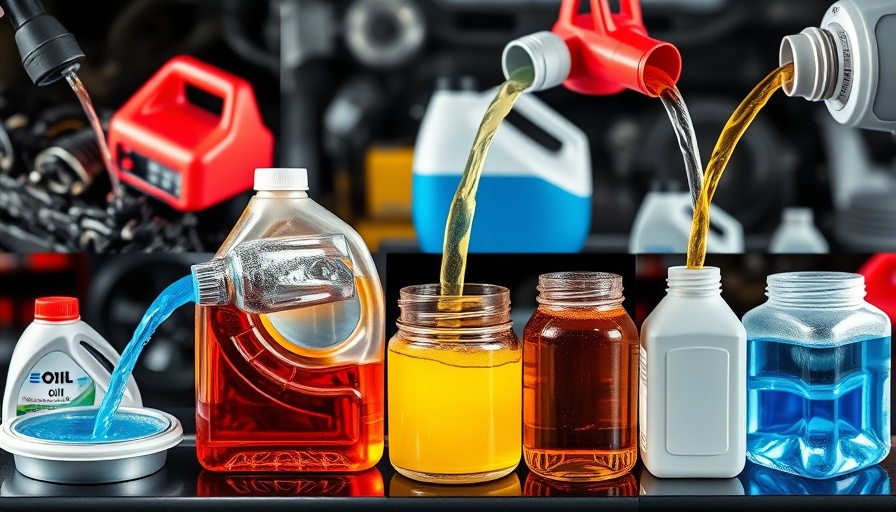
Understanding the Many Fluids That Keep Your Car Running Smoothly
Owning a car comes with responsibilities, and one of the most vital yet often overlooked tasks is taking care of its fluids. In the video "How To Change EVERY FLUID In Your Car or Truck (ULTIMATE GUIDE)" a comprehensive guide is provided on maintaining eight crucial fluids in your vehicle. Ensuring these fluids are topped off and clean is essential to avoiding costly repairs and keeping your car running efficiently.
In "How To Change EVERY FLUID In Your Car or Truck (ULTIMATE GUIDE)", the discussion dives into essential car maintenance fluids, exploring key insights that sparked deeper analysis on our end.
Why Engine Oil Is Your Car’s Best Friend
Engine oil is often considered the hero under your hood, yet many drivers underestimate its importance. Not only does it lubricate the engine components to prevent wear, but it also cools the engine, fights against rust, and cleans out dirt. Regular changes every 5,000 miles or six months are recommended to keep your engine in optimal condition. Different types of engine oil, such as 10W30 and 5W30, cater to various climate conditions, so always check your owner's manual for specifications.
Coolant: The Lifesaver in Extreme Temperatures
Coolant, while often neglected, plays a significant role in controlling engine temperatures. This colorful liquid prevents overheating in summer and freezing in winter, ensuring your engine operates smoothly. Replace your coolant every 50,000 miles for optimal efficiency. Remember, checking it is simple: just open the reservoir after the engine cools and ensure the levels are between the minimum and maximum marks.
The Importance of Power Steering Fluid
Without power steering fluid, maneuvering your car would feel impossible. This fluid enables smooth steering and protects the steering system from premature wear. If you hear noises or feel stiffness when steering, it’s time to check your fluid levels. Most cars can go 50,000 to 70,000 miles before needing a change.
Brake Fluid: Your Safety Preventer
Brake fluid is crucial; it is what allows you to stop your vehicle. Ignoring its condition can lead to dangerous situations. Always check your brake fluid every 3 to 5 years or as recommended in your manual to ensure your braking system is responsive. A dark or murky color indicates it’s time for a replacement.
Transmission Fluid: The Gear Lubricant
Transmission fluid is the muscle behind your car's shifting capabilities. Without it, changing gears would be rough and could lead to serious transmission damage. Check every 60,000 miles and refer to your manual for the recommended type, as using the wrong fluid can create problems.
Windshield Washer Fluid: Driving Visibility
While often overlooked, windshield washer fluid is essential for maintaining visibility. It's easy to refill and should be done anytime you're conducting other fluid checks. Opt for season-appropriate washer fluid to ensure it performs well throughout the year.
Sometimes, Overlooking Transfer Case and Differential Fluid
Drivers often forget to check the transfer case fluid and differential fluid, particularly in all-wheel and four-wheel vehicles. Ignoring these fluids can result in severe performance issues. Regularly checking these fluids—about every 30,000 to 60,000 miles—will keep your drivetrain healthy.
Regular Maintenance Is Key to Longevity
Understanding the importance of these eight fluids is crucial for every car owner. Regular checks and changes are necessary not only for vehicle performance but also for your safety on the road. By following the guidelines provided in the video, you'll gain insights on how to maintain your vehicle effectively and possibly save on costly repairs.
Take action today by checking your vehicle’s fluid levels! Healthy maintenance practices can protect you from breakdowns and provide peace of mind on the road. The more you know about your vehicle, the safer you will be.
 Add Row
Add Row  Add
Add 




 Add Row
Add Row  Add
Add 

Write A Comment